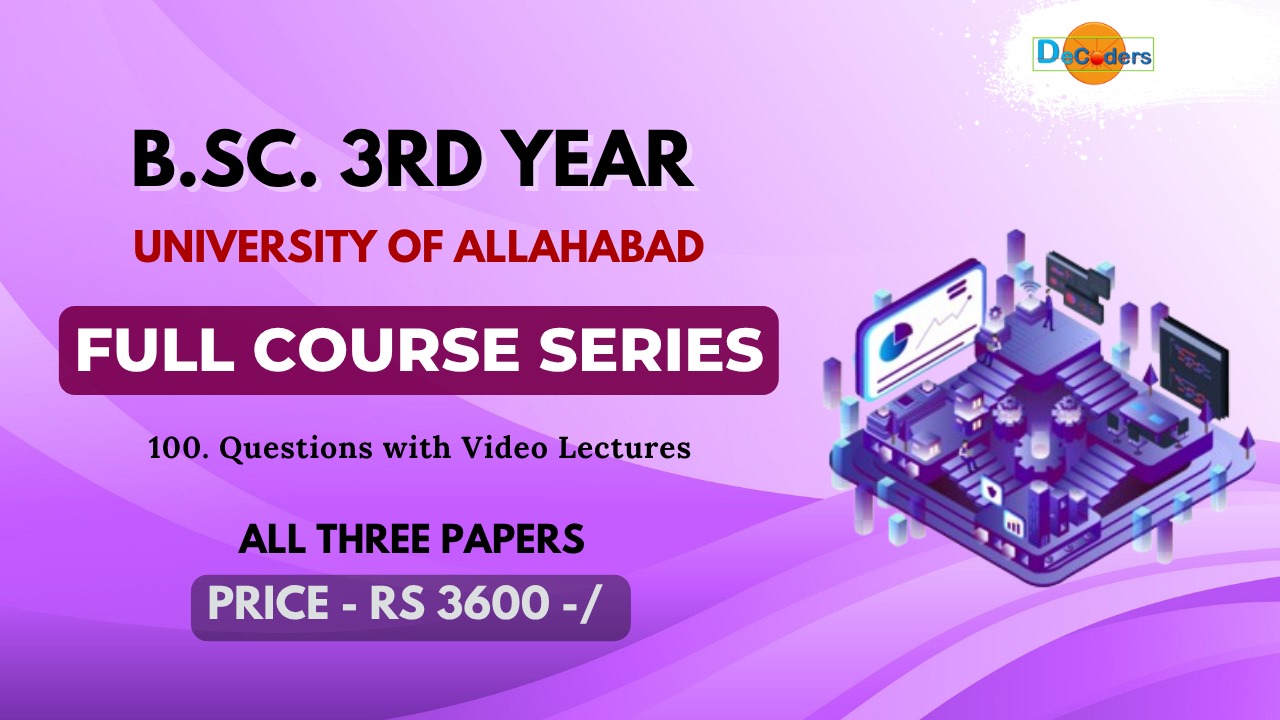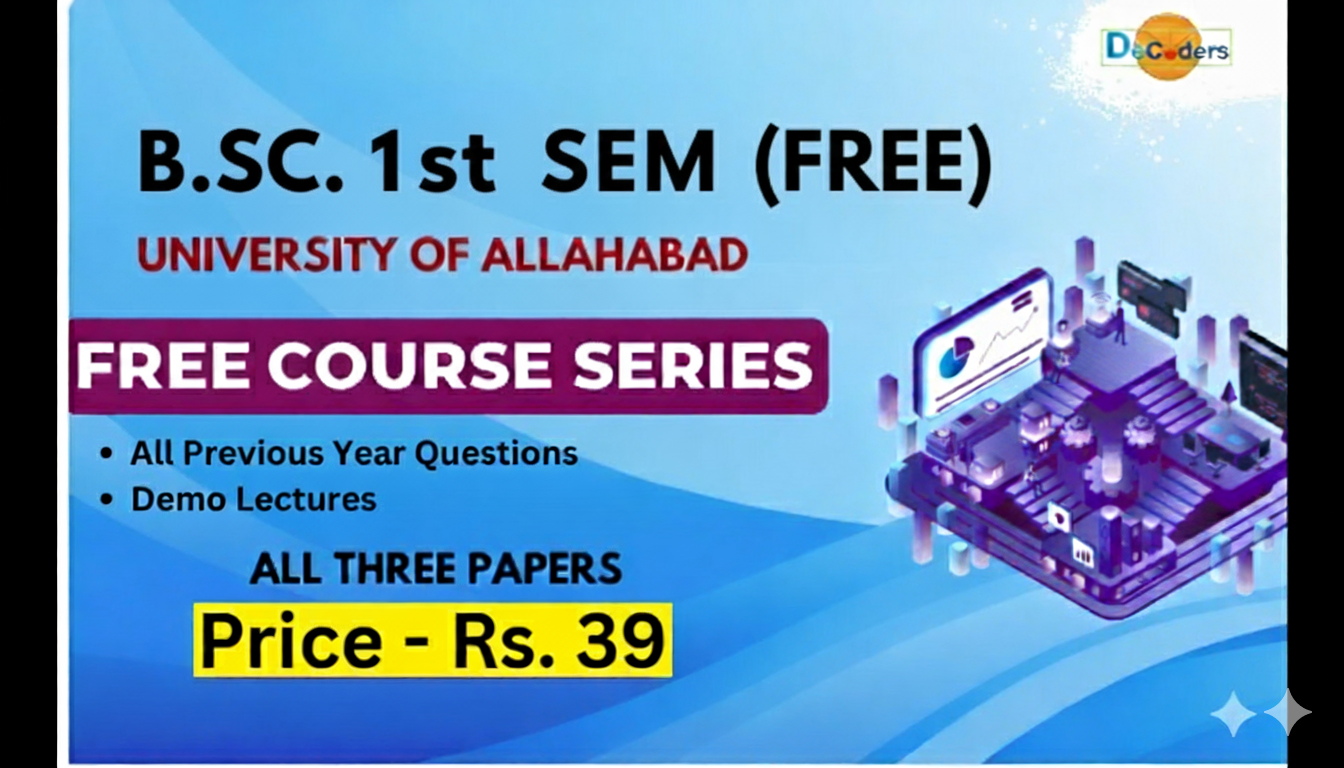Our Courses

B.Sc. 3rd Year Full Course (PAID)
In this course, you will receive complete recorded lectures covering Java, DBMS, and Operating Systems, along with previous years’ question papers with detailed solutions, practical implementations for all three subjects, and project ideas to strengthen your understanding and application of the concepts.
Enroll Now
B.Sc. 1st Semester Course (FREE)
In this course, you will be provided with previous years’ question papers and carefully selected video resources for B.Sc. 1st Year Computer Science, available at a minimal cost of ₹39.
Enroll NowB.Sc. 2nd Year Full Course (PAID)
In this course, you will receive complete recorded lectures covering Architecture, Networking, and Data Structure, along with previous years’ question papers with detailed solutions, practical implementations for Data Structure, to strengthen your understanding and application of the concepts.
Enroll Now